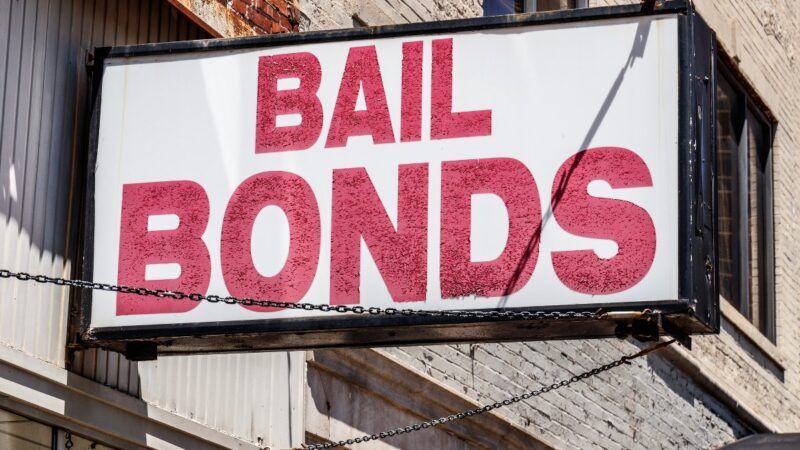California Supreme Court Rules It's Unconstitutional To Imprison People Just Because They Can't Afford Bail
Pretrial detention is supposed to be for people deemed dangerous, not people without money.

In a unanimous California Supreme Court decision, the state's top justices ruled Thursday that courts must consider a defendant's ability to pay bail before setting exorbitant demands that keep many people locked up in pretrial detention.
Cash bail is intended to be a mechanism of making sure that people who have been charged with crimes eventually return to court and keep their noses clean while they're free. In reality, the practice has become a system where many people, particularly poor people, are stuck in jail not because they're flight risks or deemed dangerous, but simply because they cannot pay what's asked of them. These people essentially end up serving the equivalent of jail sentences before ever being convicted.
"The common practice of conditioning freedom solely on whether an arrestee can afford bail is unconstitutional," Justice Mariano-Florentino Cuellar wrote early in the 29-page ruling for the court. "Other conditions of release—such as electronic monitoring, regular check-ins with a pretrial case manager, community housing or shelter, and drug and alcohol treatment—can in many cases protect public and victim safety as well as assure the arrestee's appearance at trial. What we hold is that where a financial condition is nonetheless necessary, the court must consider the arrestee's ability to pay the stated amount of bail—and may not effectively detain the arrestee 'solely because' the arrestee 'lacked the resources' to post bail."
California has been trying to negotiate bail reforms since 2018, in part due to the case behind this ruing. Kenneth Humphrey, 66, was arrested in 2017 for attempting to rob a 79-year-old man in the victim's San Francisco apartment. The victim had little money. Humphrey left with $7 and a bottle of cologne. He also had some prior strikes dating back to the 1990s but had no arrests for the past 14 years.
Nevertheless, the prosecutor requested, and the court agreed, to set bail for Humphrey at $600,000, later reducing it to $350,000. Humphrey filed a writ of habeas corpus in the state's Court of Appeal, arguing that demanding bail from a defendant knowing that he cannot afford the amount is the equivalent of a pretrial detention order. And if the state is going to demand that a defendant be detained prior to trial, the courts need to establish that the detention is necessary to protect public safety.
Eventually, the court did order Humphrey's release with a bunch of nonfinancial conditions, which included electronic monitoring, orders to stay away from the victim, and participation in a substance abuse program for seniors. San Francisco's then-District Attorney George Gascon supported bail reform (as does current D.A. Chesa Boudin) and asked the Supreme Court to review the state's bail conditions. The justices agreed.
While all that was winding through the courts, lawmakers passed a bill in 2018, S.B. 10, that eliminated cash bail entirely. Representatives from the bail bond industry objected and collected signatures and forced the reforms to a referendum in November 2020.
While bail reform is a big criminal justice concern for many civil rights groups like the American Civil Liberties Union, these groups saw big flaws in the changes the lawmakers passed. It did eliminate bail, but it also gave judges wide authority to order pretrial detention. Many criminal justice reformers feared that the way California eliminated cash bail could result in more people being stuck in pretrial detention rather than fewer. They refused to support the bill and voters tossed it out in November's referendum.
But even though voters rejected S.B. 10, that doesn't mean all prospects of bail reform are dead. The state's Supreme Court decision here is essentially reiterating a constitutional principle about due process and presumed innocence and is telling the state's courts to fix their systems. The court's order will not eliminate cash bail, so it's not actually attempting to force S.B. 10 back into action. The justices are, however, ordering that courts must consider a defendant's ability to pay when establishing bail amounts, and that's at least a pragmatic shift that will hopefully reduce unnecessary pretrial detentions.
Bail is supposed to serve as a financial backstop to make sure defendants behave and return to court. It's not supposed to decide who gets to walk free and who gets stuck behind bars while waiting for the exceedingly slow gears of justice to turn.


Show Comments (42)